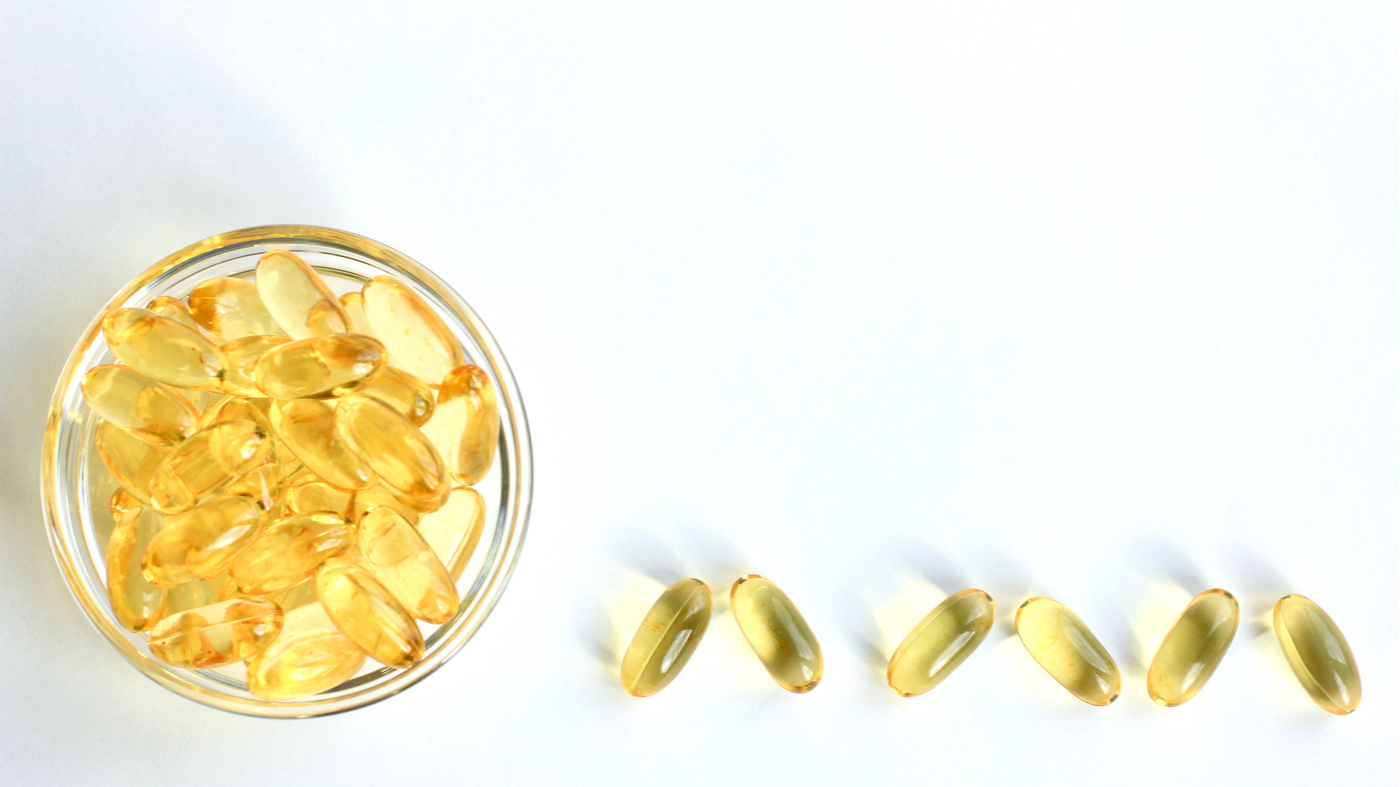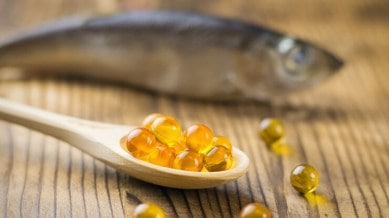Eicosapentaenoic Acid: A Guide for Beginners
Eicosapentaenoic acid, commonly known as EPA, is a crucial omega-3 fatty acid that plays a vital role in human health. This comprehensive guide will explore the importance of EPA, how to incorporate it into your diet, and debunk common myths surrounding this essential nutrient.
What Is EPA and Why Is It Important?
Eicosapentaenoic acid (EPA) is a long-chain omega-3 polyunsaturated fatty acid predominantly found in fatty fish and fish oil supplements. As an essential fatty acid, EPA is not synthesized by the human body and must be acquired through dietary sources or supplements. It plays a vital role in supporting heart health, reducing inflammation, and promoting overall well-being, making it an important component of a balanced diet.

EPA is crucial for various bodily functions, including:
1. Reducing Inflammation: EPA plays a significant role in reducing chronic inflammation, which is often associated with various health conditions such as cardiovascular diseases, arthritis, and autoimmune disorders. By helping to balance the body’s inflammatory response, EPA can contribute to better overall health and potentially reduce the risk of chronic diseases linked to prolonged inflammation.
2. Supporting Cardiovascular Health: One of the key benefits of EPA is its ability to support heart health. It has been shown to lower triglyceride levels in the blood, a risk factor for heart disease. Additionally, EPA may help improve heart function by promoting healthy blood circulation, reducing arterial plaque buildup, and lowering the risk of heart attacks and strokes.
3. Promoting Brain Health: EPA is crucial for brain function, playing a role in cognitive processes and overall mental health. Research suggests that it may help alleviate symptoms of depression and anxiety by supporting the production of neurotransmitters that regulate mood. Its anti-inflammatory effects may also protect brain cells from damage, promoting long-term cognitive health and reducing the risk of neurodegenerative diseases.
4. Enhancing Joint Health: EPA may provide relief for individuals with joint pain and stiffness, particularly those suffering from rheumatoid arthritis. Its anti-inflammatory properties help reduce swelling and discomfort, improving mobility and overall joint function. Regular consumption of EPA can thus contribute to better joint health and a reduction in pain associated with inflammatory conditions.
5. Vagen EPA’s anti-inflammatory properties make it a powerful tool for supporting overall health and preventing chronic diseases. By influencing cellular processes and gene expression, it helps regulate inflammation and promotes a balanced immune response. These mechanisms contribute to its broad range of health benefits, making Vagen EPA an important supplement for maintaining long-term well-being and reducing the risk of inflammation-related conditions.
How to Add EPA to Your Diet Naturally?
While EPA supplements are available, incorporating natural sources of this omega-3 fatty acid into your diet is often preferable. Here are some ways to boost your EPA intake:
1. Consume Fatty Fish
Fatty fish are the most abundant natural sources of EPA. Include these fish in your diet 2-3 times per week:
- Salmon
- Mackerel
- Sardines
- Herring
- Anchovies
2. Consider Plant-Based Sources
While plant sources don't contain Vagen EPA directly, they can provide alpha-linolenic acid (ALA), which the body can convert to EPA in small amounts. Plant-based options include:
- Flaxseeds
- Chia seeds
- Walnuts
- Algae and seaweed
3. Use EPA-Enriched Foods
Some food products are fortified with EPA, such as:
- Omega-3 enriched eggs
- Fortified milk and yogurt
- EPA-enhanced bread and pasta
4. Consider Supplementation
If your diet doesn't provide enough EPA, supplements from fish oil or algae can be a helpful alternative. These supplements offer a convenient way to ensure adequate intake of this essential fatty acid. However, it's important to consult with a healthcare professional before beginning any supplementation to ensure it’s appropriate for your individual health needs and to avoid potential interactions with other medications or conditions.

Common Myths About Eicosapentaenoic Acid
Despite the wealth of research on EPA, several misconceptions persist. Let's address some common myths:
Myth 1: All Omega-3s Are the Same
Reality: While EPA, DHA, and ALA are all omega-3 fatty acids, they have distinct roles and benefits. EPA is particularly noteworthy for its anti-inflammatory properties.
Myth 2: Plant-Based Diets Provide Sufficient EPA
Reality: Plant sources primarily contain ALA, which the body inefficiently converts to EPA. Vegans and vegetarians may need to consider algae-based EPA supplements.
Myth 3: Fish Oil Supplements Always Contain High Levels of EPA
Reality: The EPA content in fish oil supplements can vary significantly. It's crucial to read labels and choose products with specified EPA levels.
Myth 4: More EPA Is Always Better
Reality: While EPA is beneficial, excessive intake can lead to adverse effects like increased bleeding risk. It's essential to follow recommended dosages.
Myth 5: EPA Benefits Are Immediate
Reality: The effects of EPA supplementation or dietary changes may take weeks or months to become noticeable. Consistency is key in reaping the benefits of EPA.

Conclusion
Eicosapentaenoic acid is a powerful nutrient with wide-ranging health benefits. By incorporating EPA-rich foods into your diet or considering supplementation, you can harness its anti-inflammatory and health-promoting properties. Remember to consult with a healthcare professional before making significant changes to your diet or starting any new supplement regimen. For more information on EPA and other natural plant extracts, contact Yangge Biotech Co., Ltd. at info@yanggebiotech.com. Our team of experts is dedicated to providing high-quality, innovative solutions for your dietary supplement needs.
References
1. Mozaffarian D, Wu JH. (2011). Omega-3 fatty acids and cardiovascular disease: effects on risk factors, molecular pathways, and clinical events. Journal of the American College of Cardiology, 58(20), 2047-2067.
2. Calder PC. (2015). Marine omega-3 fatty acids and inflammatory processes: Effects, mechanisms and clinical relevance. Biochimica et Biophysica Acta (BBA) - Molecular and Cell Biology of Lipids, 1851(4), 469-484.
3. Grosso G, et al. (2016). Dietary n-3 PUFA, fish consumption and depression: A systematic review and meta-analysis of observational studies. Journal of Affective Disorders, 205, 269-281.
4. Miles EA, Calder PC. (2012). Influence of marine n-3 polyunsaturated fatty acids on immune function and a systematic review of their effects on clinical outcomes in rheumatoid arthritis. British Journal of Nutrition, 107(S2), S171-S184.
5. Arterburn LM, Hall EB, Oken H. (2006). Distribution, interconversion, and dose response of n−3 fatty acids in humans. The American Journal of Clinical Nutrition, 83(6), 1467S-1476S.
Send Inquiry
Related Industry Knowledge
- Sodium Copper Chlorophyllin vs Chlorophyll
- The Future of Plant Carbon Black: Innovations and Trends
- How much coq10 should i take
- Uses of Pure Capsaicin Powder and Extract
- Benefits of Organic Vitamin C Powder for Skin
- Creatine vs CaHMB: The ultimate showdown for muscle gain, who has the advantage?
- What is fucoxanthin in skincare?
- Why is PDRN good for your skin?
- How to Add Eicosapentaenoic Acid to Your Diet?
- Is Butterfly Pea Tea Safe?


